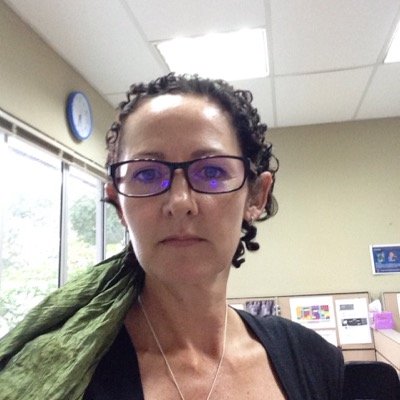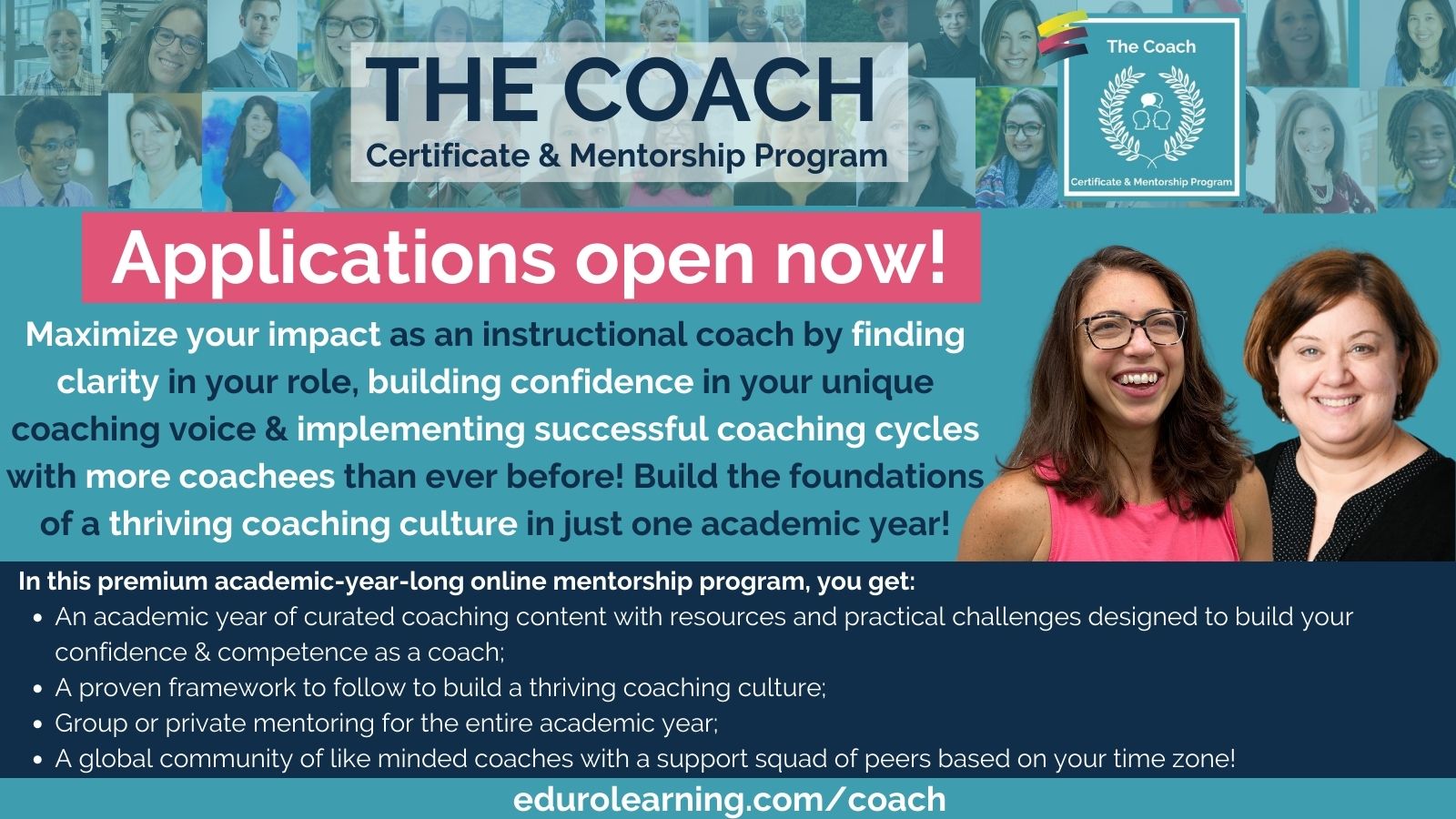In this #coachbetter episode we’re chatting with four of our superstar coaches from the podcast: Tim, Ben, Kim and Maggie, so you get a wide range of perspectives and experiences! We talk through the different approaches we take when working with teams as compared to how we work with individuals, the strategies we use to effectively facilitate meetings and the prep work that goes into making those meetings successful, as well as the ways we can support the professional growth of a team by thinking about team dynamics.
Subscribe to #coachbetter via your favorite Podcast Player!
Featured Guests




Bonus! Watch the Spotlight Version on YouTube!
Show Notes
Coaching 1:1 vs Coaching teams
Ben: coaching teams, plan a lot more, use a lot more tools. In 1:1 meetings I’m more open. I definitely have something in mind when I go in to work with teams.
Maggie: Easier to stay in coaching mode when working with individuals. With a team, I tend to switch between different roles. Coaching teams is during collaborative meeting, people see me as a collaborator. More often in a team, they see me as an expert, so that means I have more I have to share. Always try to leave the decision up to them.
Ben: Sometimes I like to talk to individuals ahead of time, to mine for ideas. Sometimes I know that people can be shy talking in front of groups, especially new team members. Reach out ahead of time to get a sense of what they’re thinking about.
Maggie: One of the dynamics I noticed in my last school, some meetings were just with teachers; others were teachers and TAs. In the meetings with TAs, it was really important that the TAs had a voice. They often wanted to wait back to hear what teachers had to say. They often needed to be asked.
Tim: I’ll do prep work before a team meeting. Find out background information, as outsider coming into your group, what do you want me to say. Sometimes there are sensitive issues that make it easier for me to say.
Maggie: Sometimes it’s useful to play ignorant.
Kim: When I’m working with a team, it’s more generic, you look ahead into the curriculum, here are a bunch of things you could possibly use, which way do you want to go. When it’s an individual, it’s more personalized.
What specific prep work do you do before a team meeting?
Ben: Huge fan of protocols, lets you be an observer. Can make the environment very warm and caring, but also strict to following the protocol, also allows you to bring people back into focus when they get off task.
Kim: looking at curriculum, talking with program coordinator for her insight. Might touch base with the team, look back at last year.
How do you structure meetings?
Maggie: difference between dialogue and discussion. First meeting talking through a UoI is dialogue (all want to put ideas on the table and listen to everyone else, most important thing is listening to understand where the other person is coming from). But at some point you need to make decisions, and then you shift from dialogue into discussion (purpose is to make a decision). If everyone knows the purpose of the meeting, then everyone can feel like it was a good use of time. I always try to be really overt about the purpose of the meeting.
Kim: Giving a timeframe for each aspect of the meeting.
Ben: Working on slowing down the discussion, by paraphrasing, and share the gist of the meeting, listening for the phrase “yeah, that’s right” If we can slow it down, it gives people time to process, and leads to a “yes, and” situation. Always ask someone to take notes, and then use notes to recap the meeting and document on the agenda.
Tim: Agenda on a spreadsheet, all in one document, easy to look back at previous conversations.
How to run a good meeting – when you’re not the organizer
Ben: paraphrasing can help get everyone on the same page, when people are talking one after another, no one feels like they’ve been heard, so if you can paraphrase you know that what was heard is correct & if not you give a chance to clarify further
Kim: “I’m not sure I understand what you’re saying” “I’m wondering if…”
How does it look / feel when working with teams as compared to individuals?
Kim: much better at taking notes in a team, more structured, more note keeping, seems more official. Can be more of a quick convo with an individual
Ben: try to keep the group focused, bring them back to the agenda. The larger it gets, and the longer it’s been between team meetings, too much tries to get covered.
How do you manage growth as a team? How do you move them forward?
Tim: Having a convo with the team leader ahead of time. Middle school has moved to standards based grading, teachers are struggling with this, now dept head is working with me to help that team move forward. Balance team needs with what the school is trying to do.
Maggie: On the team, there are going to be some people open to new ideas, others who will be lacking in confidence or resistance. If we’re talking about growth of the team as a whole, it’s the person who lacks confidence that is important to support. In a meeting, where you know there are 1-2 people who are not going to support, they’re the ones I’m going to focus on. Bc if you don’t’ have those individuals willing to try something, then you won’t be able to grow the team.
Ben: project tuning protocol: pulls in people who are not part of the team (with unique perspectives, like students and other subject areas). People who are on the team, pitch the project or the unit, and everyone else discusses the unit. Team members sit back and listen. Time to clarify & ask questions, at the end, they have that conversation to take back to their next meeting.
Ben: How can I be conscious of when it’s the right time to share ideas. It’s important for us to be aware of what type of meeting it is and what our role is. Sometimes it’s just to sit and listen.
Kim: Sometimes if you’re too enthusiastic and share too many ideas, you can lose them. It can just add noise to the meeting
Tim: Seek first to understand, and then be understood. Sometimes teachers just need to hear verification.
Maggie: Normally in the first meeting, when we’re talking about the unit, I need to sit quietly to listen and understand. It’s not my role to shape that unit, it’s my role to support the direction they want to go in. I can only seek to understand if I’m listening hard.
What have we missed
Ben: teams can look very different, each of those bring unique possibilities. Working with leaders, it’s more broad in scope and stakes are higher. Working with grade level teams, it’s just about single classrooms.
Kim: team meetings are always set, when it comes to individual times, how do you manage to schedule them in with someone who’s already busy.
Tim: sometimes I’m asked to work with a teacher, other times they approach me, and third option is appointment slots in my calendar that people can book.
Maggie: I’m a bookable resource, I tend to have coaching meetings with individuals on their own timeline. It doesn’t have to be a formal conversation, can coach someone just walking down the stairs.
Ben: appointment slots, started targeting specific year groups with specific things. For this month, I’m working on these things, if you want to work on this, just book me in and I’m ready to go
Level Up Your Coaching with The Coach!
If you are ready to dive deep into your coaching practice, to help you #coachbetter and build a thriving coaching culture in your school, please join us for our next cohort of The Coach!
Wherever you are in building a coaching culture in your school, The Coach will give you the strategies, skills and tools you need to make coaching a success and will empower you to confidently apply instructional coaching strategies in any situation – from building a coaching program, to having coaching conversations, to being a leader in your school community. We facilitate only one cohort each academic year so we can offer individualized support for each participant.
Coaches of all levels are welcome: you’ll start the program with a self-assessment to determine exactly what the next steps are for you!
Registration for our next global cohort opens once a year – check the website for details!






Recent Comments